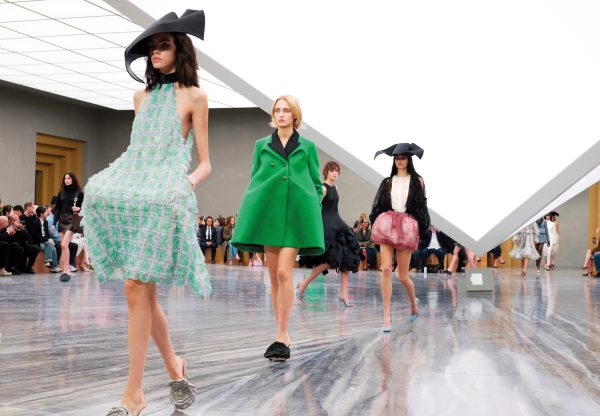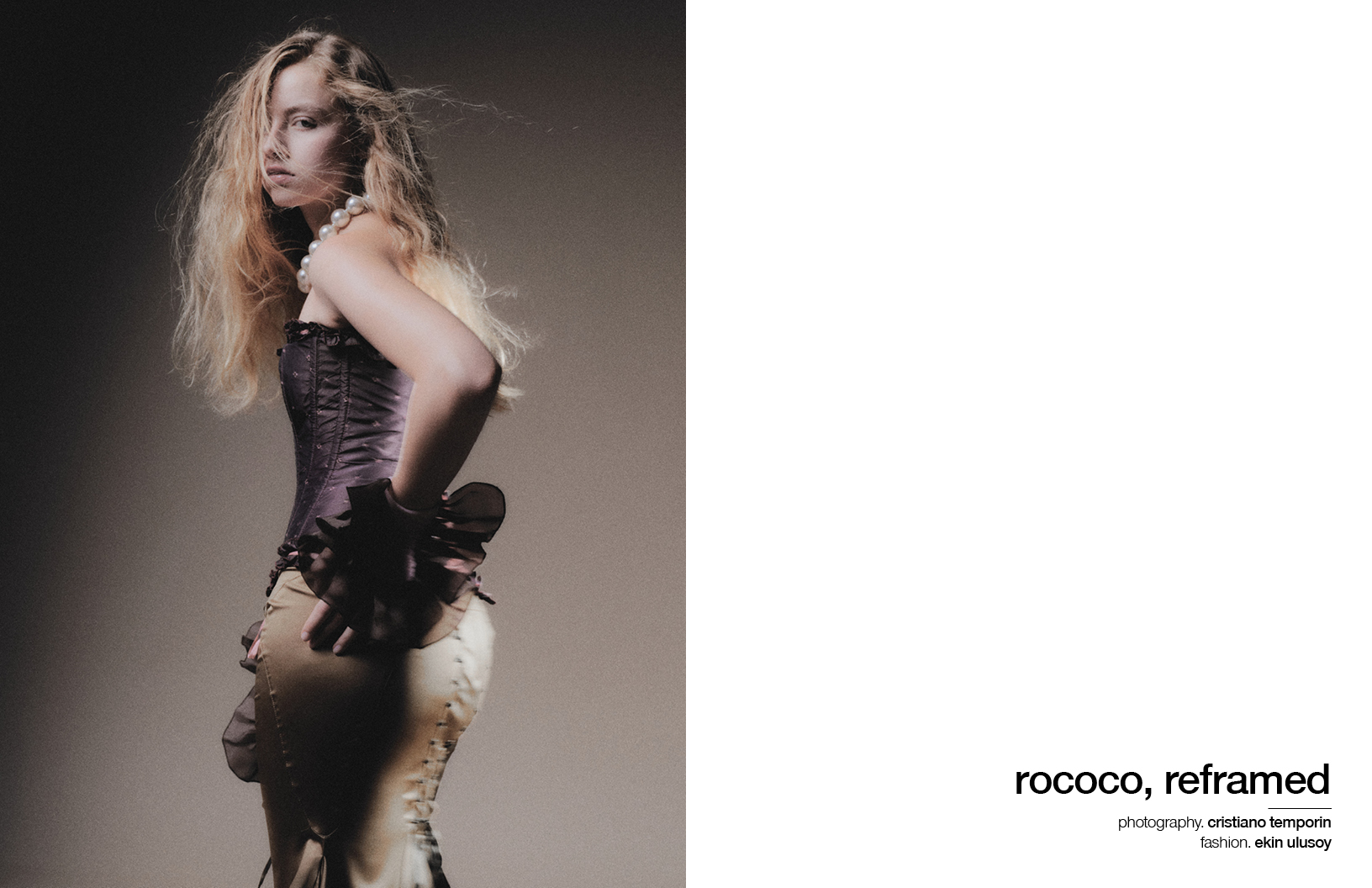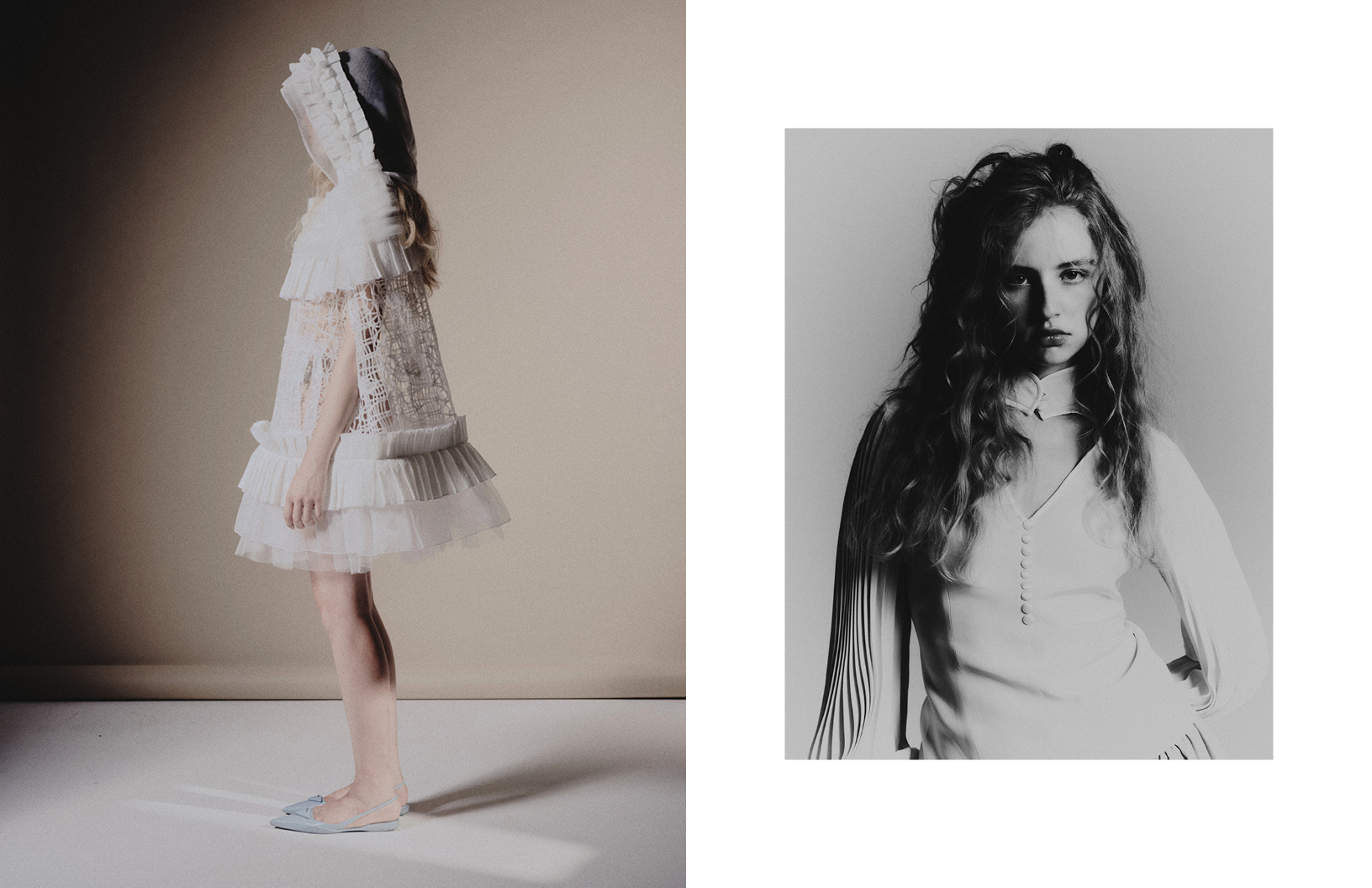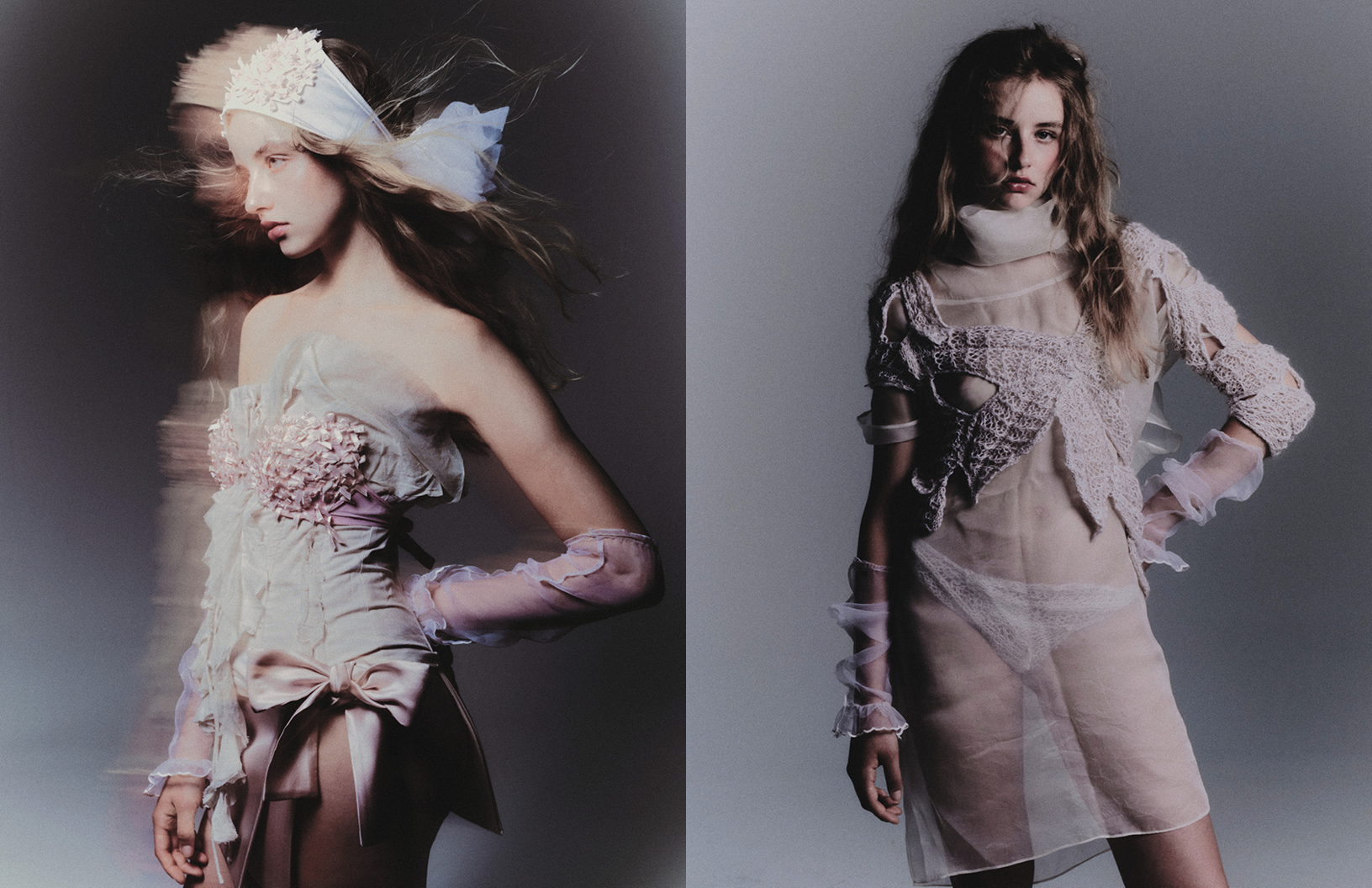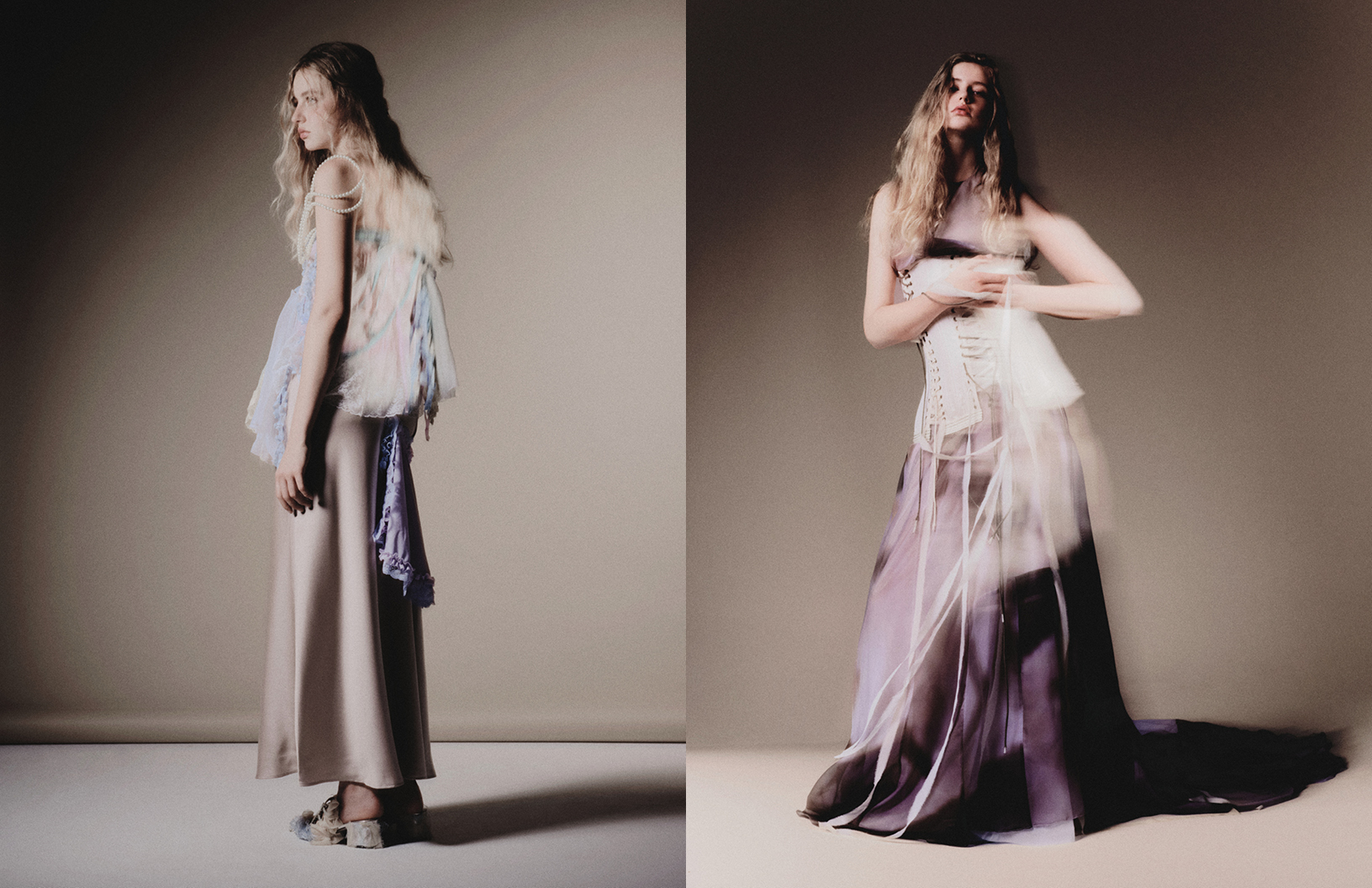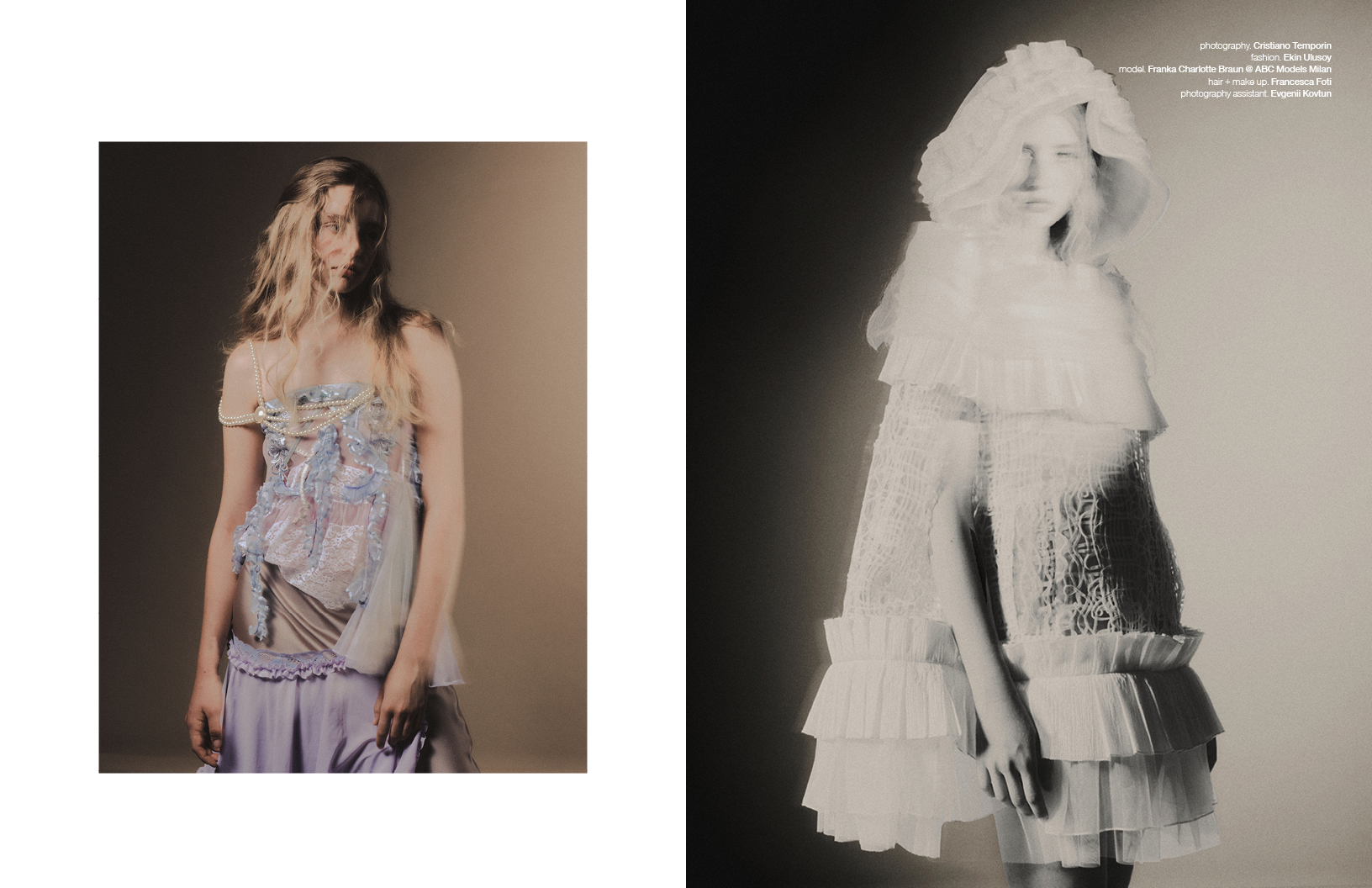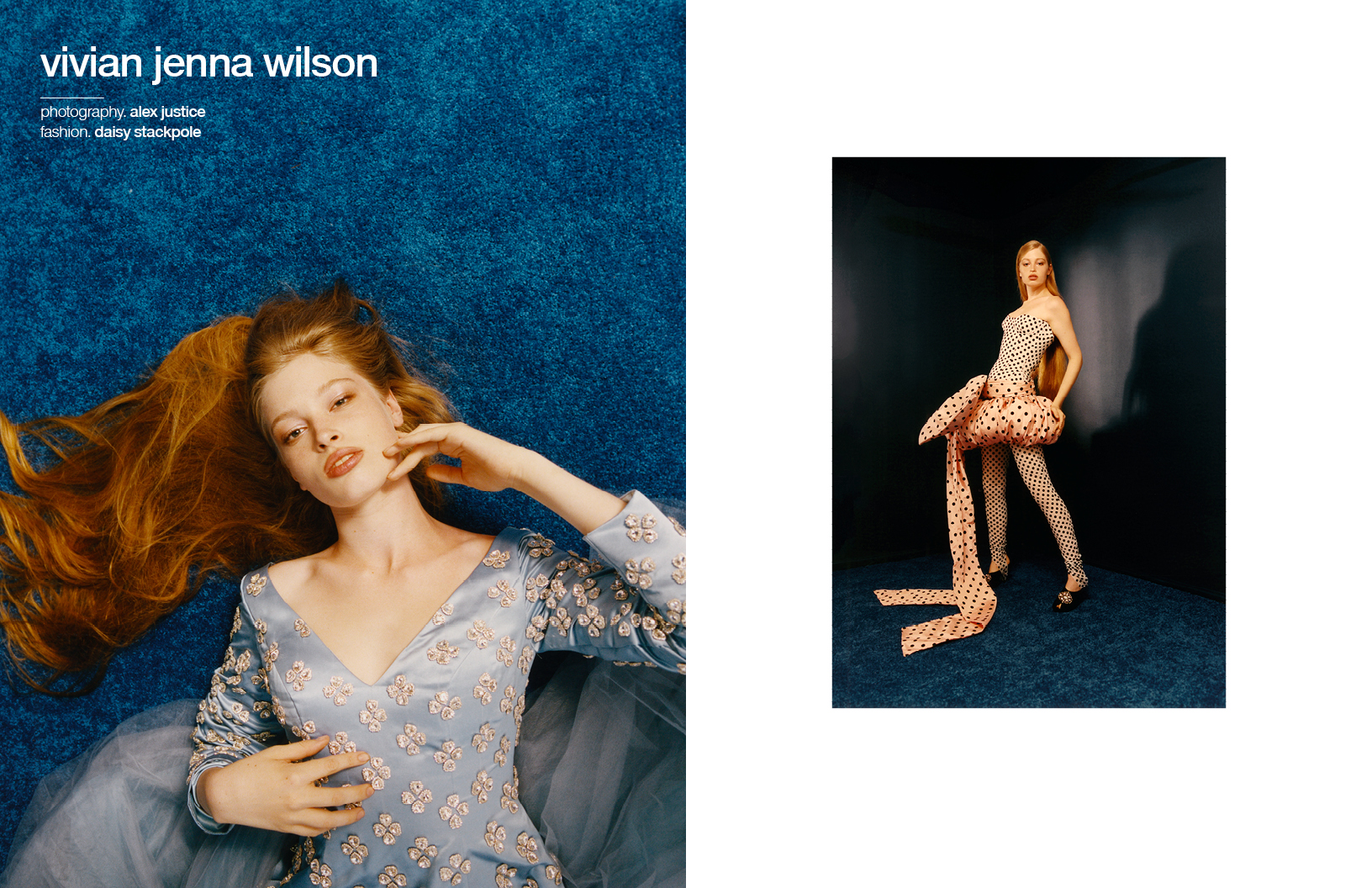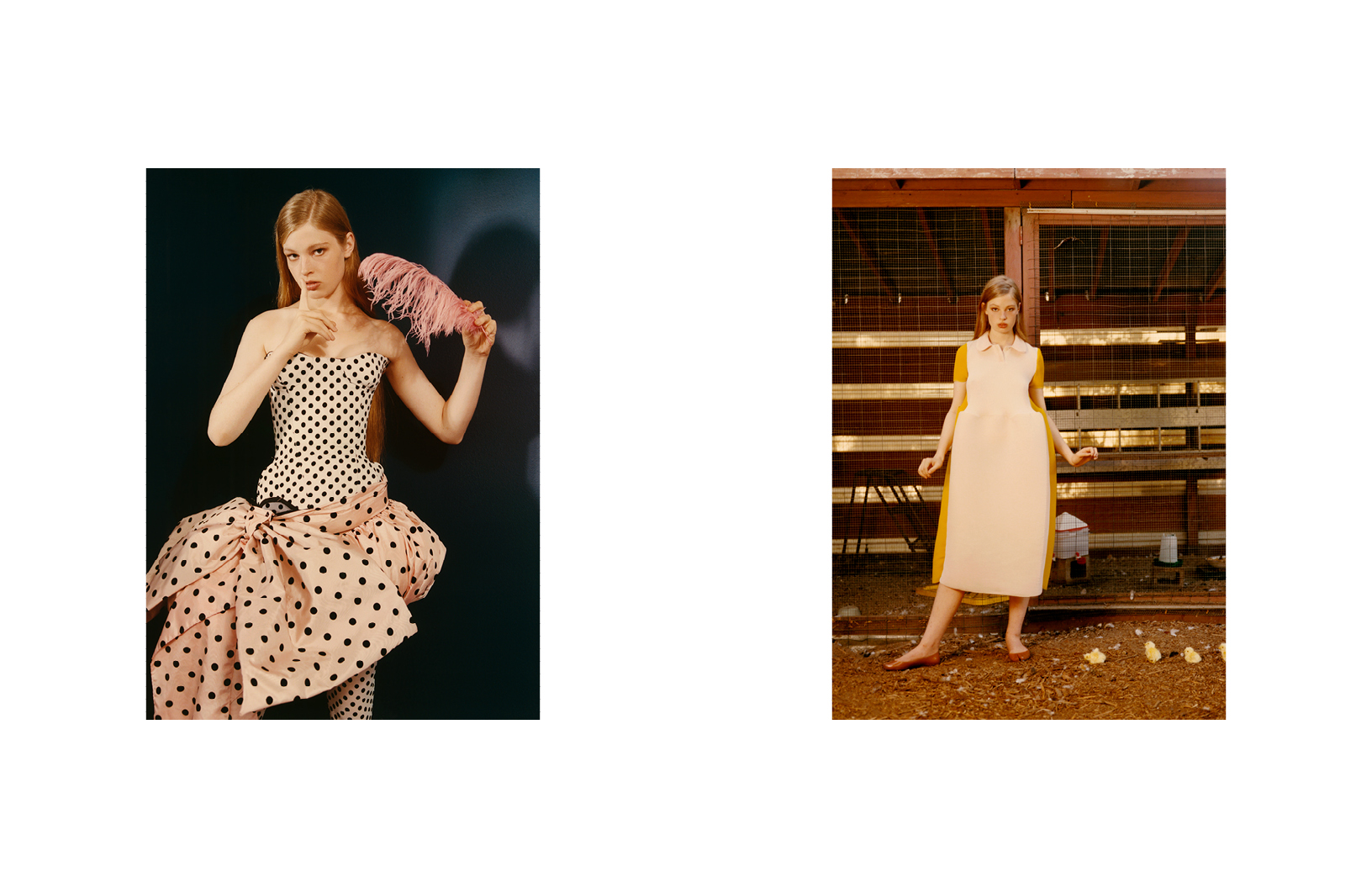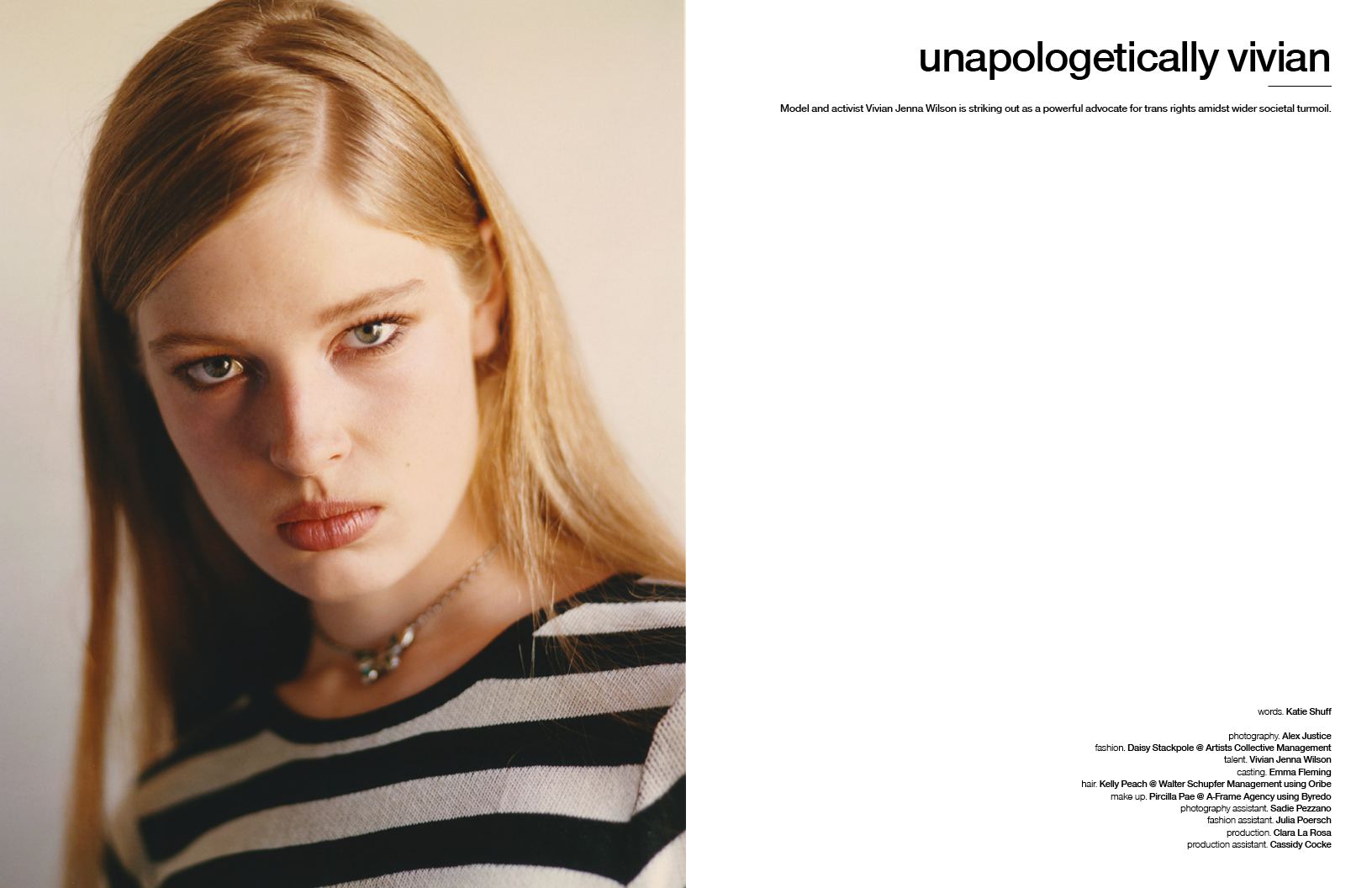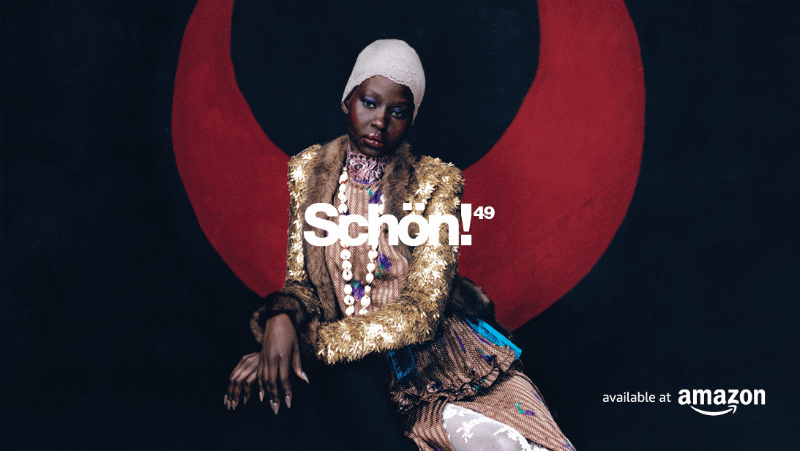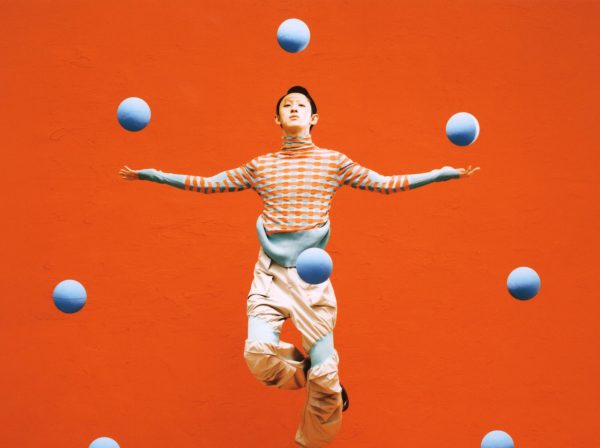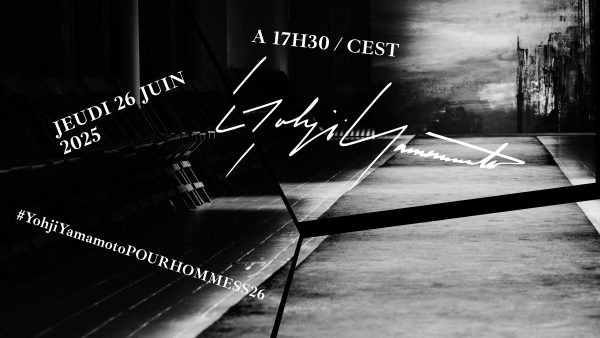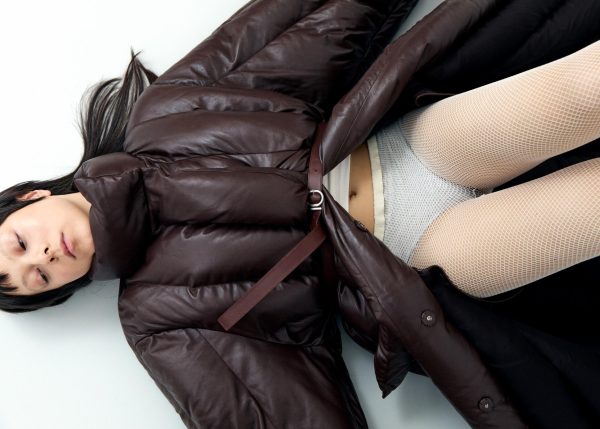While the need to reinvent the industry’s business model is an urgency every fashion house seems to be addressing, certain designers have been crafting fashion with a purpose since their inception. Whether it’s addressing fashion with a sustainable approach, reinventing gender codes, or addressing the divide of the Global South and North within the industry, Schön! explores the designers, on and off the fashion week schedule who are truly shaking up the global fashion industry.
Inspired by money, or rather on the excesses and pitfalls of currency, designers Patric DiCaprio and Bryn Taubensee crafted their signature critical, punk approach with flair for Autumn/Winter 2024. The silhouettes were beautifully chaotic and haphazard, toying with ideas of fakes, of mass-market consumerism emulating luxury in the struggle to flaunt wealth at all costs. Dollar sign prints collided with the extravagant faux fur pieces that told tales of a desolate race to money, somehow reflecting back fashion’s current obsession and need to find sense in capitalising on exclusivity. This was an energy-infused wake-up call from New York’s favourite off-grid duo.
One of the original ‘90s fashion houses, XULY.Bët is led by Lamine Kouyaté, and occupies a rare space in the Parisian panorama, with its grassroots, punk approach to design. His patchwork and scraps-sewn-together designs meld his Malian roots with his background in architecture, as well as references to New York and Parisian culture (he’s a favourite of the stars, incidentally, with everyone from Rosalìa to Rihanna donning his designs). For this Autumn/Winter 2024 collection, Kouyaté stayed local to the Sentier area – specifically the Passage du Caire – once a hub of Paris’ fashion ateliers.
Here, a generation of immigrant workers gave a new influx of life to the area and the industry in the ‘80s and ‘90s, with a new point of view on design and production. This was Kouyaté’s tribute to the area, celebrating his own trajectory, and putting a keenly forgotten aspect of Paris’ history and cultural heritage on the map. Pieces were patchwork and painted, emblazoned with his signature logo. A real breath of fresh air and vibrant energy in Paris that is sometimes overshadowed by mainstream commerce.
For her Autumn-Winter 2024 RUIbuilt collection, Rui Zhou expanded on what was already there: seeking to twist, stretch and reinvent collections she has already shown, Zhou tapped into a process of growing rather than constantly churning new designs, as dictated by the industry. “This Collection is inspired by information saving and changing, which is why I used a lot of signature pieces I had used before, but reversed them, to use a new texture or material.
In previous collections, you can see them stretched out on the body, while this season we bring them into daily life pieces,” she told Schön! after her show. “The prints are incorporated into intarsia stretch knitwear, so it shows the body, but in a different way.” This process of reinvention situated Zhou’s interpretation of the female body in a model of fashion with purpose, rather than pure aesthetic. Her vision of femininity is decidedly modern, with one key message at the heart of her work: “The main thing is self love. Stereotypes on women’s bodies are from a different age, if you don’t care, if you trust and embrace yourself, then there’s strength in that.”
Vincent Pressiat is a young favourite of the Parisian schedule. His erotic, punk, glamourous take on Parisian fashion is a timely regenerative influx of new vigour, in a calendar increasingly bogged down by commercial heavyweights. Titled ECHO, the collection seemed to play with a post-apocalyptic aesthetic around speed, toying with a commentary on the absurdity of the world.
Working with a collection entirely designed with deadstock fabric, Pressiat presented a vision for a circular fashion model, all the while presenting extremely contemporary pieces, both sleek and tailored to perfect precision. A gown made entirely from used tires brought this repurposed approach to life, while the cast of queer Parisian icons walking and showing skin (to a highly amused and enthusiastic Jean Paul Gaultier, among others) brought high-octane levels of energy to the first day of fashion week. A hallmark of Paris’ younger generation of designers, who’s sure to be sticking around.
For his 8th collection, Victor Weinsanto ventured further into his singular, passionate reinvention of femininity, tapping his iconic codes and pieces. In true burlesque form, models interpreted their own representation of femininity, with Weinsanto’s oversized gowns, his immaculate corsetry, and a unique usage of black throughout. Silhouettes were sculptural, sensual, and seemed to emerge from a hidden queer Cabaret of the 18th arrondissement.
Speaking of BUZIGAHILL as a movement rather than a brand, Bobby Kolade situates the brand as “somewhere in between many ideas: art, politics, and fashion, we always aspire towards a place of meaningful, responsible creation.” Speaking to Schön!, Kolade explains how the Kampala-based brand functions on repurposing clothes, with an intrinsically contemporary approach that puts sustainable fashion on a new pedestal. Much of the Global North’s waste fashion is destined for the Global South, where it mostly ends up in landfills.
The functionality of BUZIGAHILL is to repurpose the fabric, with a specific design approach, before sending it back to the Global North: “For RETURN TO SENDER I had to unlearn everything I knew from design school in Berlin and at work in Paris – We don’t use mood boards, there are no toiles, and our limitations in infrastructure mean we’re designing and working at a highly practical level: what’s possible in Kampala, where screen printing a T-shirt is a battle and more than half the second-hand clothes that enter the country are stained? Our aesthetic is based completely on a response to the existing clothes we work with. They tell us what to do.”
As a sustainable business model, working locally is key to the process – the aim of the team is to expand by repurposing an old textile factory in the East of the country. With their slightly off grid status, BUZIGAHILL is a movement breathing direction and sense into the fashion industry, conscious of the global structural power dynamics at play: “Every single day I’m inspired by the team at BUZIGAHILL. Our work is a defiant act, every garment and every day is a fight against a system of waste colonialism, so to be part of a team in Kampala taking on systemic exploitation is powerful – I’m always angry though,” Kolade concludes. “Anger inspires me.”
words. Patrick Clark


























































































































